The list of invited speakers is not closed yet, but we are very happy to announce the following confirmed speakers:
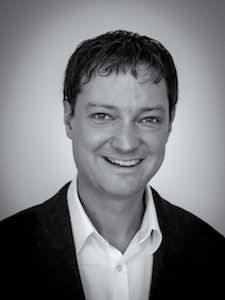 Pascal Oesch is an associate professor at the Department of Astronomy of the University of Geneva as well as at the Cosmic DAWN Center at the University of Copenhagen. He received his PhD in 2010 at ETH Zurich, and was subsequently awarded a NASA Hubble Postdoctoral Fellowship at the University of California, Santa Cruz from 2010-2013. He then moved to Yale as a YCAA Fellow until 2016, when he became an assistant professor at the University of Geneva thanks to an SNSF Professorship grant. Since 2022 he has been appointed as an associate professor at the University of Geneva leading the Galaxy Build-up at Cosmic Dawn group. Pascal Oesch is an expert in observations of galaxies in the very distant Universe, using both ground- and space-based facilities. He has led large programs with the Hubble, Spitzer, and now the James Webb Space Telescopes including international teams to unveil the properties of the first generations of galaxies using both imaging and spectroscopy.
Pascal Oesch is an associate professor at the Department of Astronomy of the University of Geneva as well as at the Cosmic DAWN Center at the University of Copenhagen. He received his PhD in 2010 at ETH Zurich, and was subsequently awarded a NASA Hubble Postdoctoral Fellowship at the University of California, Santa Cruz from 2010-2013. He then moved to Yale as a YCAA Fellow until 2016, when he became an assistant professor at the University of Geneva thanks to an SNSF Professorship grant. Since 2022 he has been appointed as an associate professor at the University of Geneva leading the Galaxy Build-up at Cosmic Dawn group. Pascal Oesch is an expert in observations of galaxies in the very distant Universe, using both ground- and space-based facilities. He has led large programs with the Hubble, Spitzer, and now the James Webb Space Telescopes including international teams to unveil the properties of the first generations of galaxies using both imaging and spectroscopy.
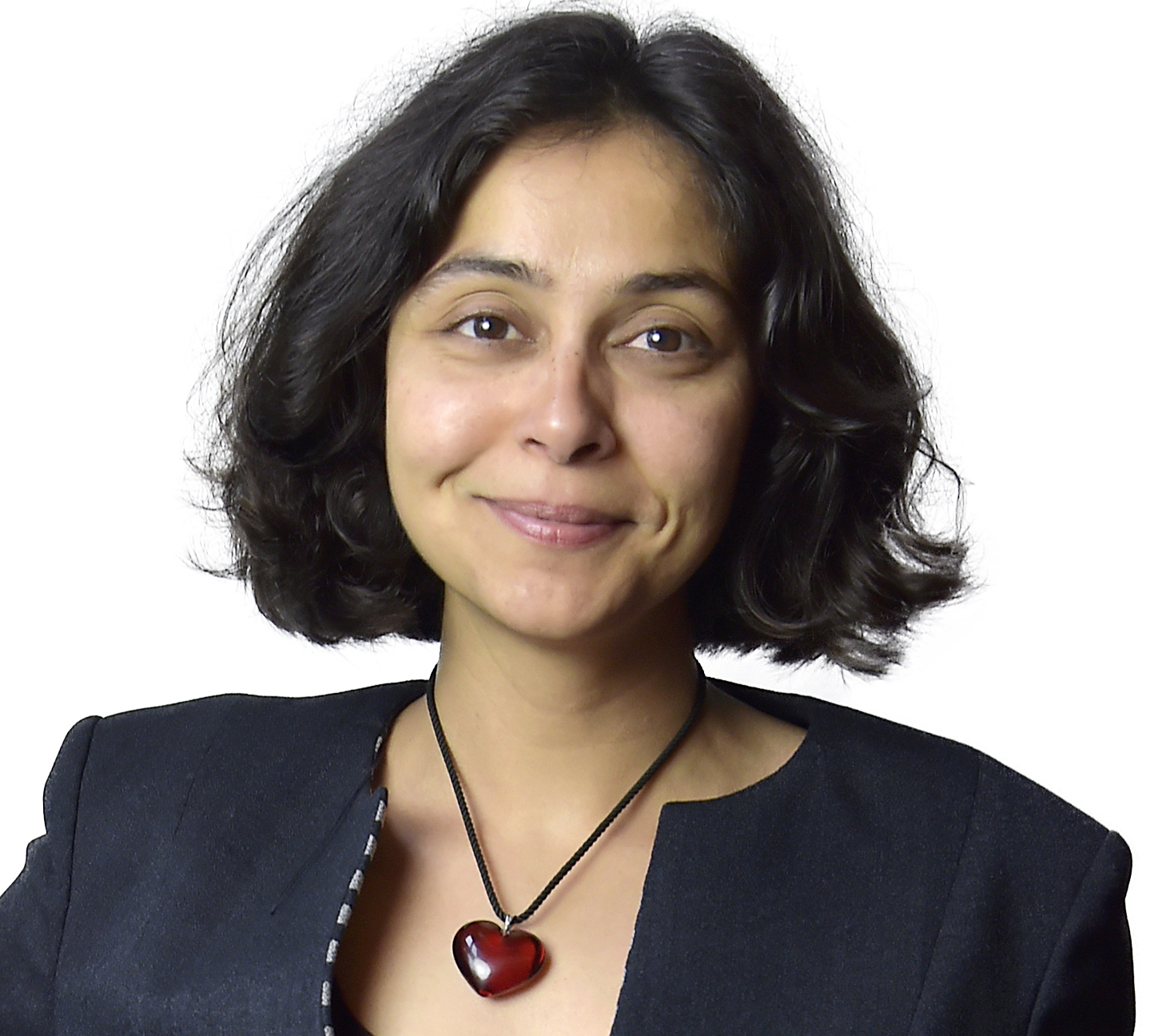 Pratika Dayal is an Associate Professor and Rosalind Franklin Fellow at the Kapteyn Institute at Groningen University. Her research focuses on answering some of the most pressing questions in modern astrophysics and cosmology such as: how did early galaxies form and evolve through time to form the amazing complexity of structure we see around us? What is the nature of the mysterious Dark Matter (DM) that makes up 80% of the matter content in the Universe? How can we use realistic astrophysical models to look for habitability in the Universe? She is Principal Investigator of the DELPHI project that is funded by an ERC Starting grant.
Pratika Dayal is an Associate Professor and Rosalind Franklin Fellow at the Kapteyn Institute at Groningen University. Her research focuses on answering some of the most pressing questions in modern astrophysics and cosmology such as: how did early galaxies form and evolve through time to form the amazing complexity of structure we see around us? What is the nature of the mysterious Dark Matter (DM) that makes up 80% of the matter content in the Universe? How can we use realistic astrophysical models to look for habitability in the Universe? She is Principal Investigator of the DELPHI project that is funded by an ERC Starting grant.
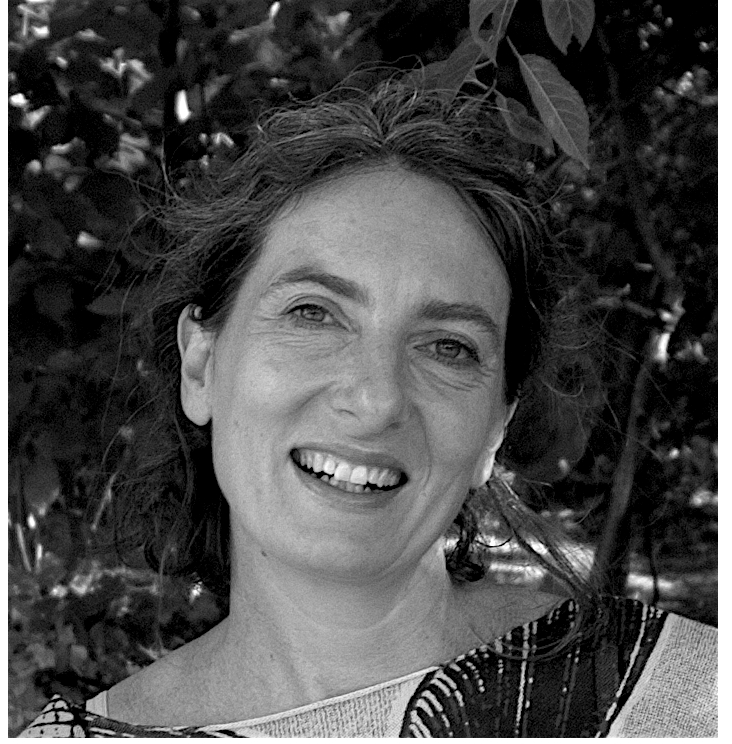 Benedetta Ciardi received her PhD from the University of Florence in 2001. She then moved to the Max Planck Institute for Astrophysics (MPA) in Garching for a Postdoctoral position within a Marie Curie Fellowship program (2001-2005). In 2005 she became a Research Group Leader at MPA. She was awarded a Marie Curie Excellence Award in 2004 and became a Knight of the Order of Merit of the Italian Republic for academic excellence in 2010. Her research focuses on the theoretical investigation of early structure formation and intergalactic medium properties. In particular, she is interested in cosmic reionization and associated observational probes, among which the modelling and detection of the 21cm line from high redshift neutral hydrogen. In this respect, she is the project manager for the acquisition, building and operation of a LOFAR station.
Benedetta Ciardi received her PhD from the University of Florence in 2001. She then moved to the Max Planck Institute for Astrophysics (MPA) in Garching for a Postdoctoral position within a Marie Curie Fellowship program (2001-2005). In 2005 she became a Research Group Leader at MPA. She was awarded a Marie Curie Excellence Award in 2004 and became a Knight of the Order of Merit of the Italian Republic for academic excellence in 2010. Her research focuses on the theoretical investigation of early structure formation and intergalactic medium properties. In particular, she is interested in cosmic reionization and associated observational probes, among which the modelling and detection of the 21cm line from high redshift neutral hydrogen. In this respect, she is the project manager for the acquisition, building and operation of a LOFAR station.
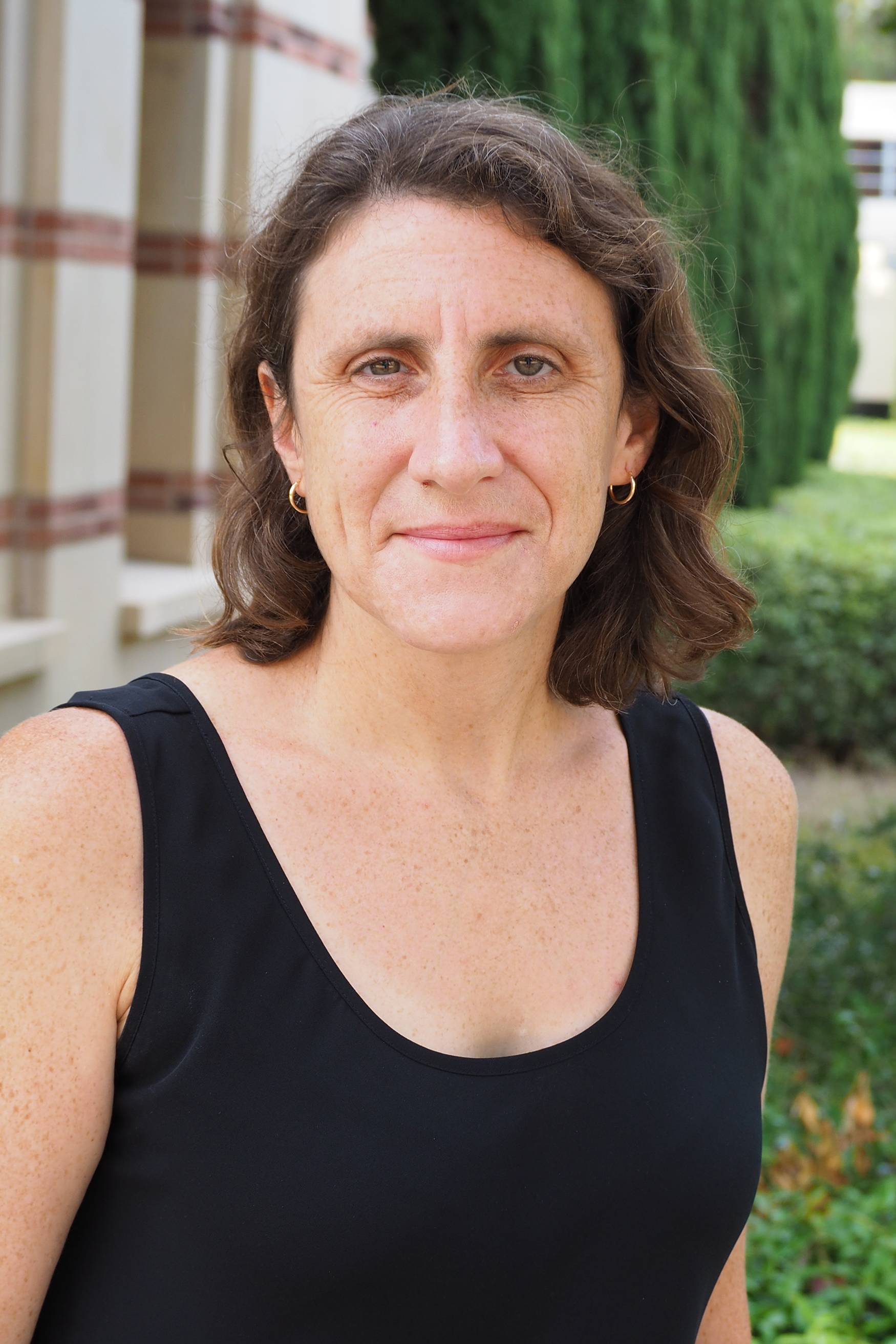 Alice Shapley is a full professor in the Department of Physics and Astronomy at the University of California, Los Angeles (UCLA). She obtained her AB at Harvard University in 1997, and a PhD from the California Institute of Technology in 2003. She was a Miller Postdoctoral Fellow at the University of California, Berkeley, and Assistant Professor in the Department of Astrophysical Sciences at Princeton University, before joining the faculty at UCLA in 2008. Shapley uses both large ground-based telescopes (e.g., Keck) and space-based facilities (e.g., HST, Spitzer, JWST) to collect optical and infrared images and spectra of distant galaxies, in order to address key questions in galaxy formation and evolution. She has been awarded honors for her research including Sloan and Packard Fellowships, and the Aaronson Memorial Lectureship, and was recently elected a fellow of the American Physical Society.
Alice Shapley is a full professor in the Department of Physics and Astronomy at the University of California, Los Angeles (UCLA). She obtained her AB at Harvard University in 1997, and a PhD from the California Institute of Technology in 2003. She was a Miller Postdoctoral Fellow at the University of California, Berkeley, and Assistant Professor in the Department of Astrophysical Sciences at Princeton University, before joining the faculty at UCLA in 2008. Shapley uses both large ground-based telescopes (e.g., Keck) and space-based facilities (e.g., HST, Spitzer, JWST) to collect optical and infrared images and spectra of distant galaxies, in order to address key questions in galaxy formation and evolution. She has been awarded honors for her research including Sloan and Packard Fellowships, and the Aaronson Memorial Lectureship, and was recently elected a fellow of the American Physical Society.
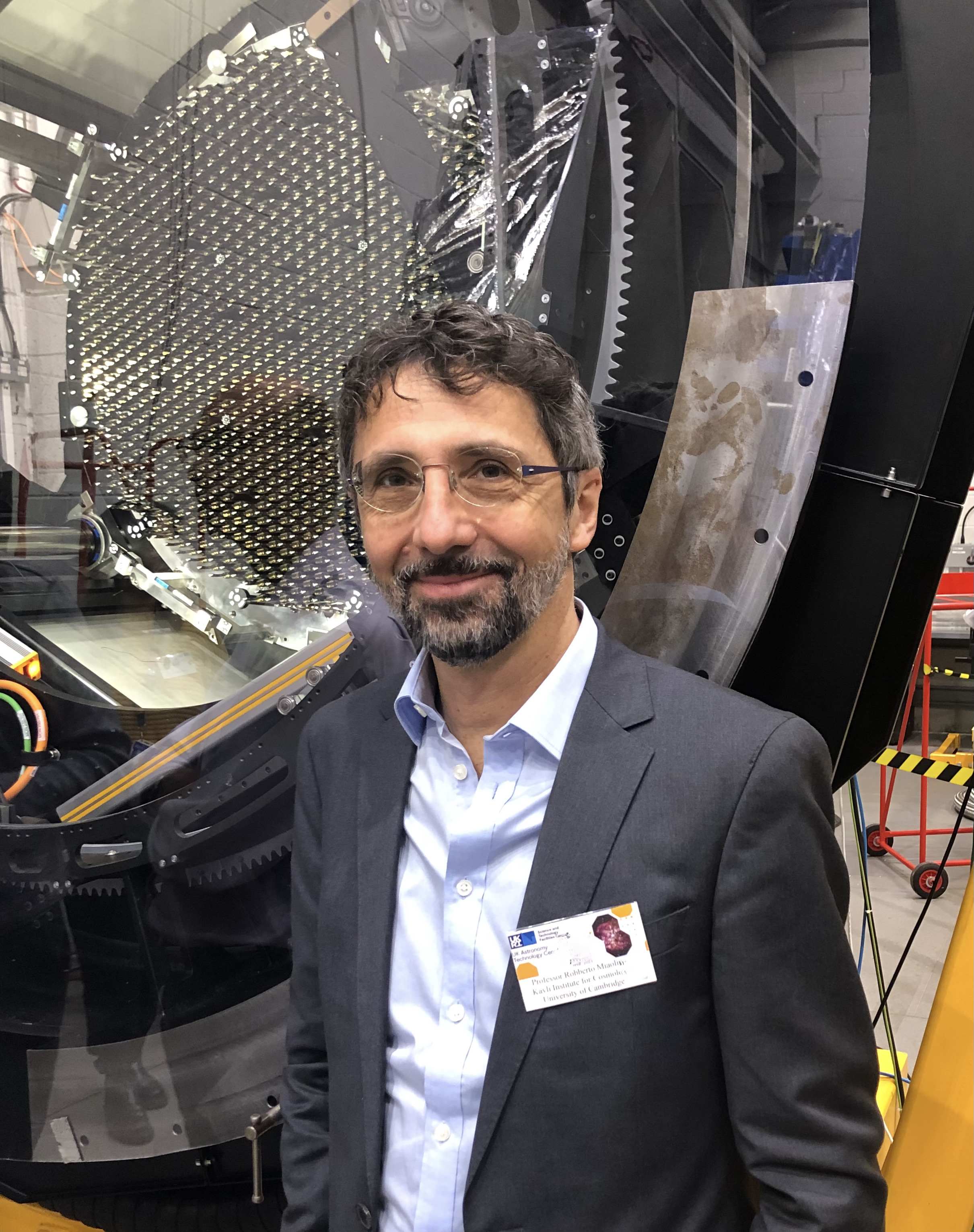 Roberto Maiolino is professor of Experimental Astrophysics at the Cavendish Laboratory (Department of Physics) and at the Kavli Institute for Cosmology of the University of Cambridge; he is also Honorary Professor at University College London, Blaauw Professor at the University of Groningen, and Royal Society Research Professor. He received his MS in Physics at the University of Florence in 1992 and the PhD in Astronomy at the University of Florence in 1996, with secondment at the Steward Observatory, University of Arizona. From 1995 to 1997 he was postdoctoral fellow at the Max Planck Institute for Extraterrestrische Physik, in Garching (Munich). From 1997 to 2006 he was astronomer at the Arcetri Astrophysical Observatory (Florence) and then, from 2006 to 2012, he was senior astronomer at the Astronomical Observatory of Rome, prior to the appointment at the University of Cambridge. In 2018 he was knighted by the Italian President in the Order of the Star of Italy. In 2022 he was elected Fellow of the Royal Society.
Roberto Maiolino is professor of Experimental Astrophysics at the Cavendish Laboratory (Department of Physics) and at the Kavli Institute for Cosmology of the University of Cambridge; he is also Honorary Professor at University College London, Blaauw Professor at the University of Groningen, and Royal Society Research Professor. He received his MS in Physics at the University of Florence in 1992 and the PhD in Astronomy at the University of Florence in 1996, with secondment at the Steward Observatory, University of Arizona. From 1995 to 1997 he was postdoctoral fellow at the Max Planck Institute for Extraterrestrische Physik, in Garching (Munich). From 1997 to 2006 he was astronomer at the Arcetri Astrophysical Observatory (Florence) and then, from 2006 to 2012, he was senior astronomer at the Astronomical Observatory of Rome, prior to the appointment at the University of Cambridge. In 2018 he was knighted by the Italian President in the Order of the Star of Italy. In 2022 he was elected Fellow of the Royal Society.
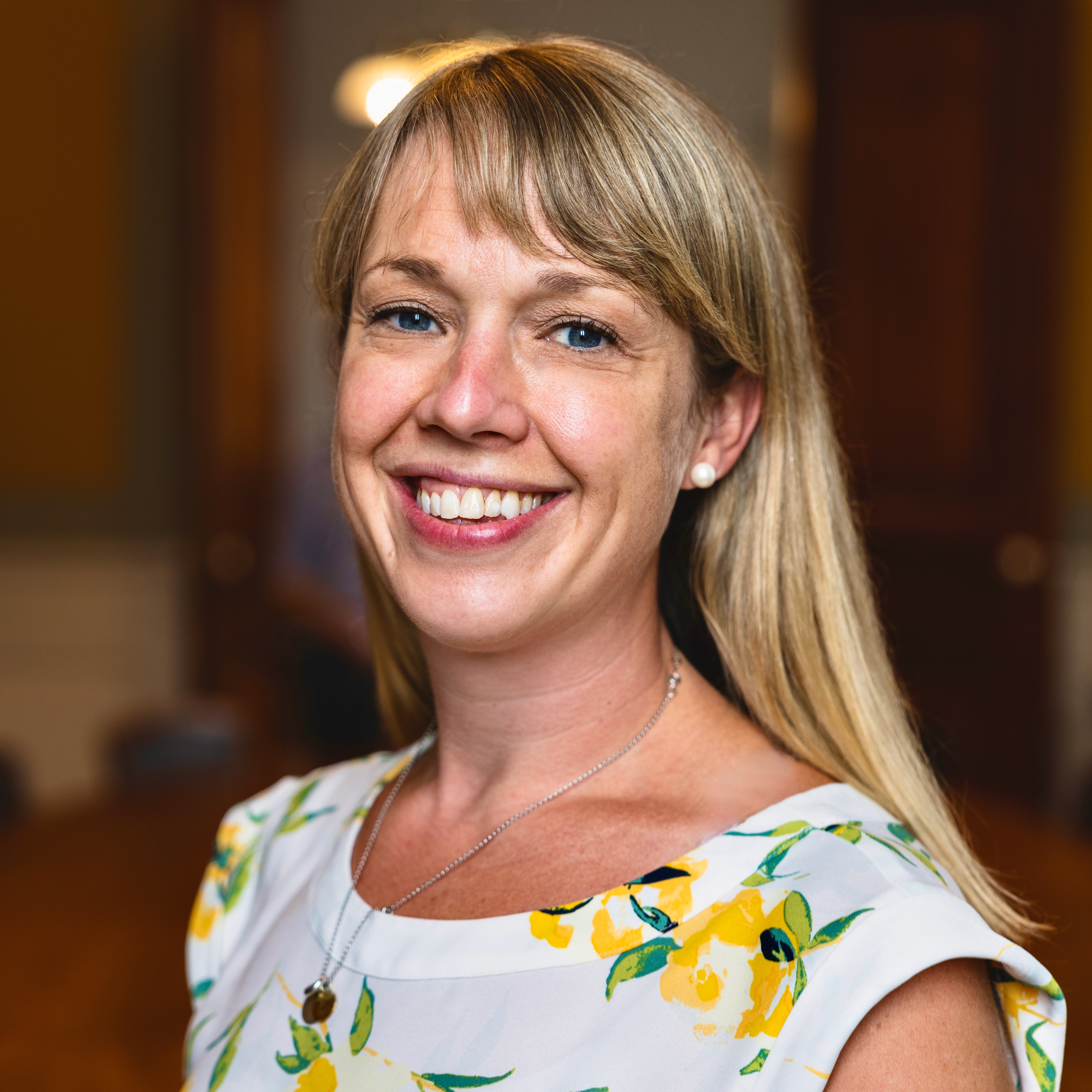 Katherine E. Whitaker is an Associate Professor of Astronomy at the University of Massachusetts Amherst and an international associate faculty member at the Cosmic Dawn Center in Copenhagen, Denmark. She is a 2019 Alfred P. Sloan fellow and 2023 Kavli Fellow. Dr. Whitaker completed her undergraduate degree at UMass Amherst (2005) and earned her PhD in Astronomy at Yale University (2012). Dr. Whitaker was a NASA Postdoctoral Program fellow at the Goddard Space Flight Center (2012-2015), a NASA Hubble Fellowship at UMass Amherst (2015-2017), and an Assistant Professor at UConn (2017-2019), before moving back to UMass in 2019. As an observational extragalactic astronomer, Dr. Whitaker studies massive galaxy formation and evolution over cosmic time using premier telescopes, with a focus on quenching.
Katherine E. Whitaker is an Associate Professor of Astronomy at the University of Massachusetts Amherst and an international associate faculty member at the Cosmic Dawn Center in Copenhagen, Denmark. She is a 2019 Alfred P. Sloan fellow and 2023 Kavli Fellow. Dr. Whitaker completed her undergraduate degree at UMass Amherst (2005) and earned her PhD in Astronomy at Yale University (2012). Dr. Whitaker was a NASA Postdoctoral Program fellow at the Goddard Space Flight Center (2012-2015), a NASA Hubble Fellowship at UMass Amherst (2015-2017), and an Assistant Professor at UConn (2017-2019), before moving back to UMass in 2019. As an observational extragalactic astronomer, Dr. Whitaker studies massive galaxy formation and evolution over cosmic time using premier telescopes, with a focus on quenching.
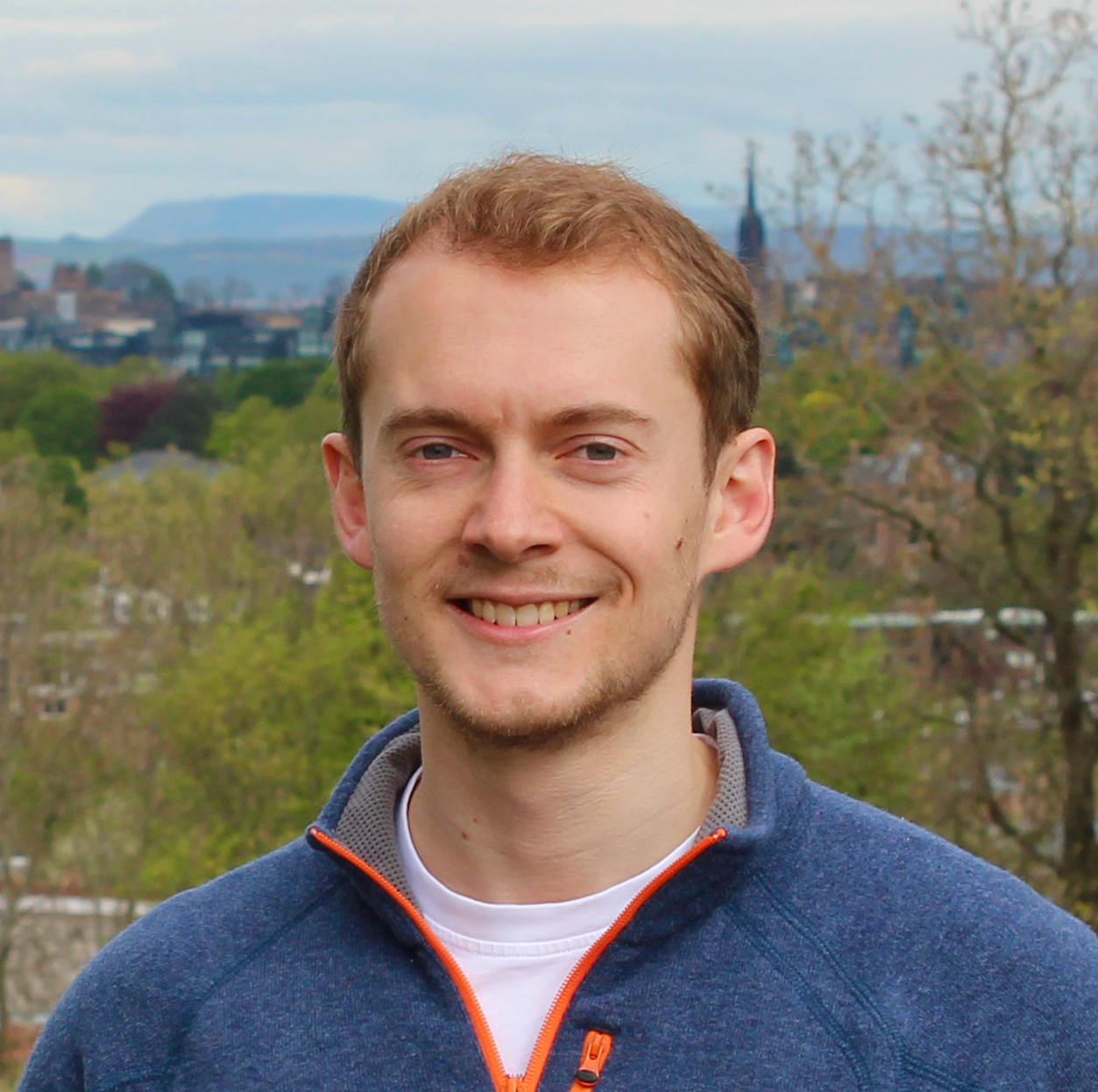 Adam Carnall is a Chancellor’s Fellow at Edinburgh University and PI of the ERC Starting Grant approved project “OMG: The Origins of Massive Galaxies”. His work focuses on the early evolution of the most massive galaxies in the Universe, in particular those that have shut down their star-formation activity. He has led several early analyses of such galaxies with the newly launched James Webb Space Telescope. Adam is also active in the field of astro software development, having published the widely used Bagpipes galaxy spectral fitting code.
Adam Carnall is a Chancellor’s Fellow at Edinburgh University and PI of the ERC Starting Grant approved project “OMG: The Origins of Massive Galaxies”. His work focuses on the early evolution of the most massive galaxies in the Universe, in particular those that have shut down their star-formation activity. He has led several early analyses of such galaxies with the newly launched James Webb Space Telescope. Adam is also active in the field of astro software development, having published the widely used Bagpipes galaxy spectral fitting code.
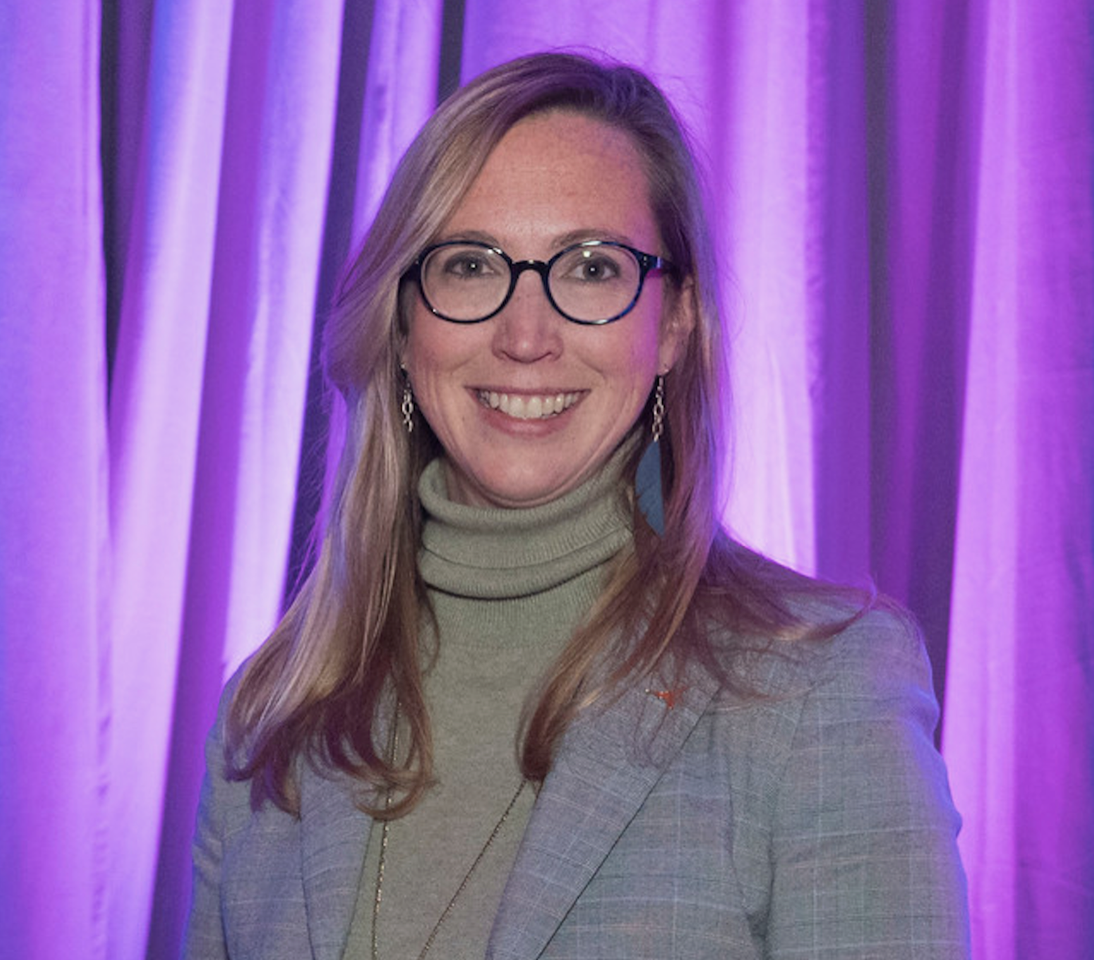 Caitlin Casey is an Associate Professor of Astronomy at the University of Texas at Austin and affiliate faculty at the Cosmic DAWN Center in Copenhagen. She carries a B.S. in Physics, Astronomy and Applied Mathematics from the University of Arizona (2007), and a PhD in Astronomy from the University of Cambridge (2010). She was a NASA Hubble Postdoctoral Fellow at the University of Hawai’i and a McCue Fellow of Cosmology at the University of California Irvine before joining the faculty at UT Austin in 2015. She was awarded the 2018 Newton Lacy Pierce Prize by the American Astronomical Society for outstanding contributions to observational astronomy before the age of 36. Her research relates to the formation and evolution of the most massive galaxies in the Universe at early times — from the perspective of their stellar mass assembly and cold gas and dust assembly.
Caitlin Casey is an Associate Professor of Astronomy at the University of Texas at Austin and affiliate faculty at the Cosmic DAWN Center in Copenhagen. She carries a B.S. in Physics, Astronomy and Applied Mathematics from the University of Arizona (2007), and a PhD in Astronomy from the University of Cambridge (2010). She was a NASA Hubble Postdoctoral Fellow at the University of Hawai’i and a McCue Fellow of Cosmology at the University of California Irvine before joining the faculty at UT Austin in 2015. She was awarded the 2018 Newton Lacy Pierce Prize by the American Astronomical Society for outstanding contributions to observational astronomy before the age of 36. Her research relates to the formation and evolution of the most massive galaxies in the Universe at early times — from the perspective of their stellar mass assembly and cold gas and dust assembly.
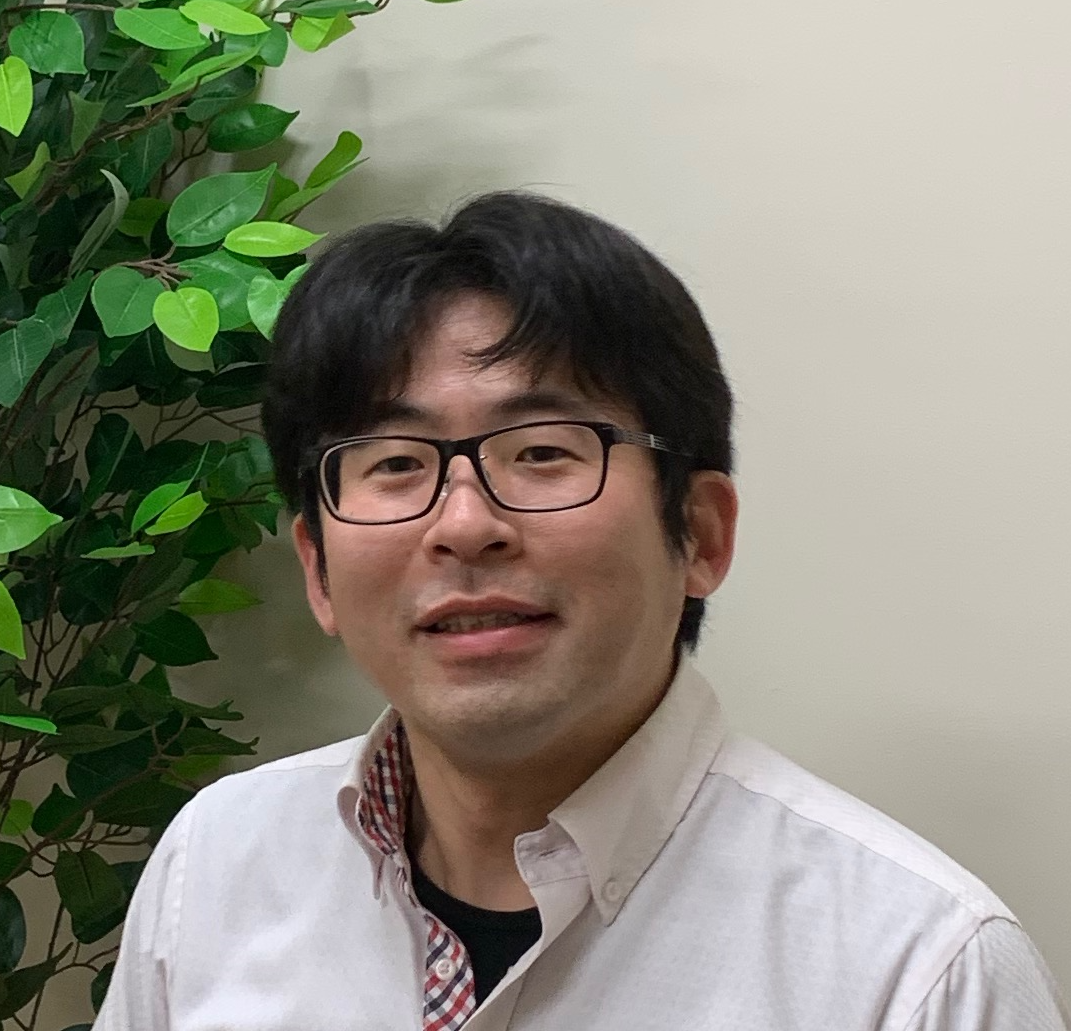 Masami Ouchi is a full professor cross-appointed to the National Astronomical Observatory of Japan (NAOJ) and the University of Tokyo. He received his PhD in 2003 from the University of Tokyo and worked as a NASA Hubble Fellow at the Space Telescope Science Institute from 2004 to 2007. After completing his Carnegie Fellowship (2007-2010), he began his appointment as an associate professor at the University of Tokyo in 2010. While he was promoted to full professor at the University of Tokyo, he was also appointed as a full professor at NAOJ in 2019. He has been awarded the Young Scientists’ Prize by Japan’s Minister of Education (2014), the JSPS Prize (2019), the Japan Academy Medal Prize (2019), and has been elected as a Beatrice M. Tinsley Research Scholar (2013) and a Clarivate Highly Cited Researcher (2019/2021). He leads a joint NAOJ-University of Tokyo research group studying galaxy formation and cosmology with large telescopes including the Subaru telescope and the James Webb Space Telescope.
Masami Ouchi is a full professor cross-appointed to the National Astronomical Observatory of Japan (NAOJ) and the University of Tokyo. He received his PhD in 2003 from the University of Tokyo and worked as a NASA Hubble Fellow at the Space Telescope Science Institute from 2004 to 2007. After completing his Carnegie Fellowship (2007-2010), he began his appointment as an associate professor at the University of Tokyo in 2010. While he was promoted to full professor at the University of Tokyo, he was also appointed as a full professor at NAOJ in 2019. He has been awarded the Young Scientists’ Prize by Japan’s Minister of Education (2014), the JSPS Prize (2019), the Japan Academy Medal Prize (2019), and has been elected as a Beatrice M. Tinsley Research Scholar (2013) and a Clarivate Highly Cited Researcher (2019/2021). He leads a joint NAOJ-University of Tokyo research group studying galaxy formation and cosmology with large telescopes including the Subaru telescope and the James Webb Space Telescope.
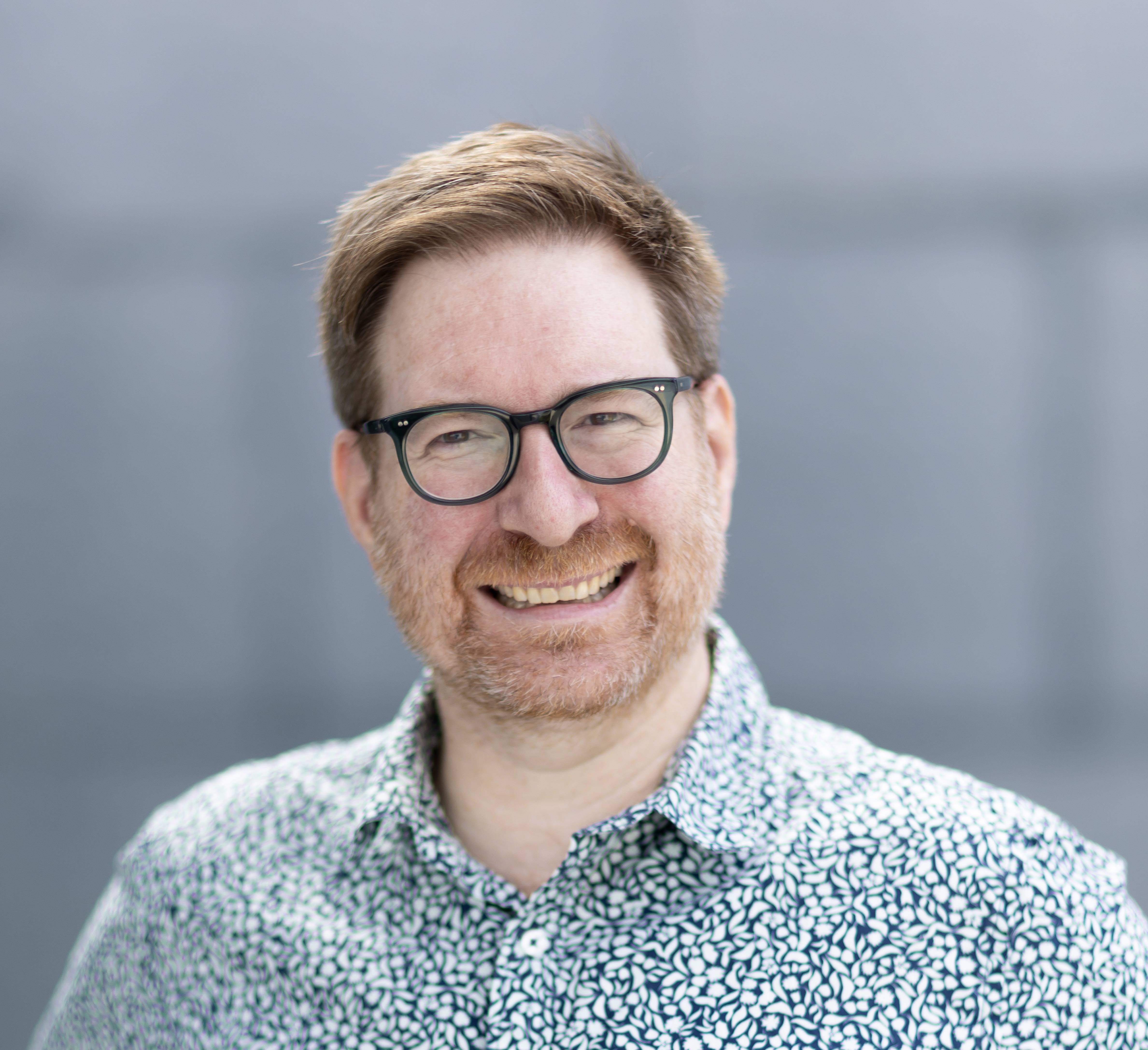 Nick Seymour received his PhD from the University of Southampton in 2002. He then had a number of postdoc positions at the Institut d’Astrophysique de Paris (as an EU RTN Fellow 2002-2004), the Spitzer Science Centre/IPAC in Pasadena (2005-2008) and Mullard Space Science Laboratory (2008-2011). He was then awarded an Australian Research Council Future Fellowship which took him to work at CSIRO’s Australian Telescope National Facility in Sydney. Since 2014, he has worked as a Senior Lecturer at the Curtin University node of the International Centre for Radio Astronomy Research. He was the founding co-chair of the International SKA Continuum Science Working Group. He studies the co-evolution of super-massive black holes and their host galaxies using deep radio and infrared surveys, in particular how the radio emission interacts with their environment. He is currently focused on using low-frequency radio surveys to select and study obscured AGN in the early the Universe.
Nick Seymour received his PhD from the University of Southampton in 2002. He then had a number of postdoc positions at the Institut d’Astrophysique de Paris (as an EU RTN Fellow 2002-2004), the Spitzer Science Centre/IPAC in Pasadena (2005-2008) and Mullard Space Science Laboratory (2008-2011). He was then awarded an Australian Research Council Future Fellowship which took him to work at CSIRO’s Australian Telescope National Facility in Sydney. Since 2014, he has worked as a Senior Lecturer at the Curtin University node of the International Centre for Radio Astronomy Research. He was the founding co-chair of the International SKA Continuum Science Working Group. He studies the co-evolution of super-massive black holes and their host galaxies using deep radio and infrared surveys, in particular how the radio emission interacts with their environment. He is currently focused on using low-frequency radio surveys to select and study obscured AGN in the early the Universe.
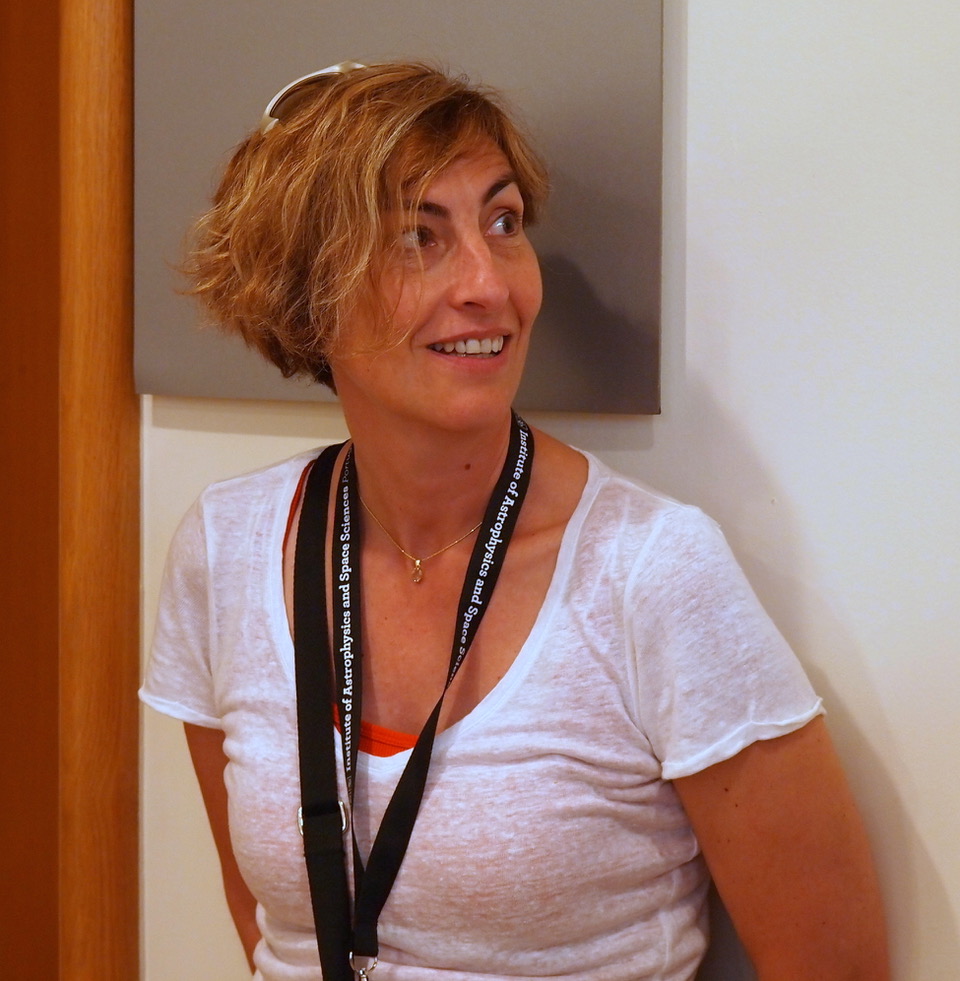 Mara Salvato received her PhD in 2003 from the University of Potsdam, in Germany. After a postdoctoral position at MPE in the OPINAS group, she moved to Caltech, in Pasadena, as COSMOS fellow. In 2009 she became group research leader at the the Max-Plank Institute for Plasma Physics (IPP), and in 2011 she moved to the high energy group at MPE where now she is permanent member of the scientific staff. Her research focusses on AGN physics and demographic and her research involves multi-wavelength data and development of tools (cross-match identification, photometric redshift and SED fitting) aiming to a better quantification of the AGN contribution to the SED’s galaxy. In 2017, 2018, 2019 and 2020 she was listed among the top 1% highly cited researchers in Space Science. In 2023 she was listed among the top 100 most successful Italian females by the Forbes Italia magazine. She is the spokesperson for eROSITA.
Mara Salvato received her PhD in 2003 from the University of Potsdam, in Germany. After a postdoctoral position at MPE in the OPINAS group, she moved to Caltech, in Pasadena, as COSMOS fellow. In 2009 she became group research leader at the the Max-Plank Institute for Plasma Physics (IPP), and in 2011 she moved to the high energy group at MPE where now she is permanent member of the scientific staff. Her research focusses on AGN physics and demographic and her research involves multi-wavelength data and development of tools (cross-match identification, photometric redshift and SED fitting) aiming to a better quantification of the AGN contribution to the SED’s galaxy. In 2017, 2018, 2019 and 2020 she was listed among the top 1% highly cited researchers in Space Science. In 2023 she was listed among the top 100 most successful Italian females by the Forbes Italia magazine. She is the spokesperson for eROSITA.